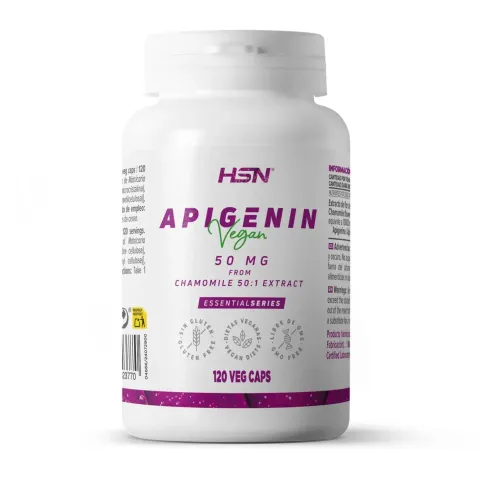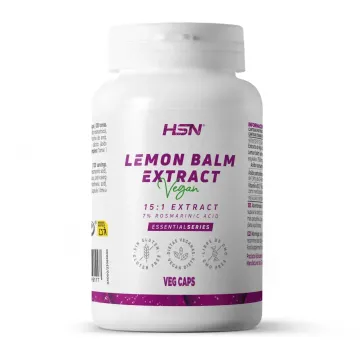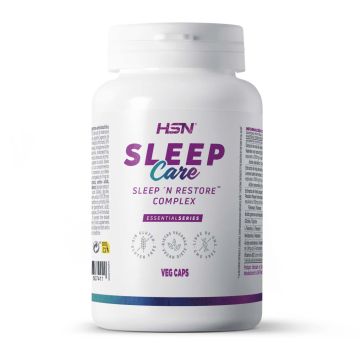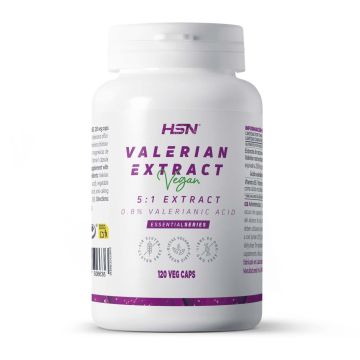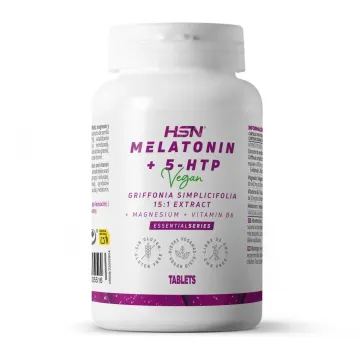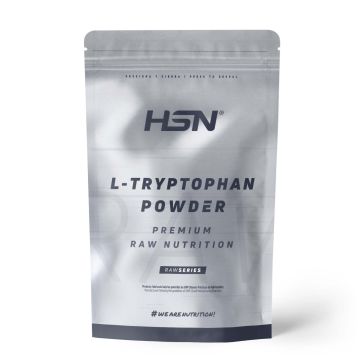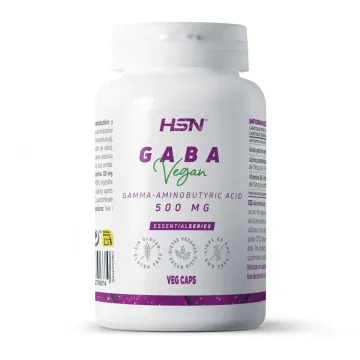- 50mg of Apigenin - A natural flavone found in plants like chamomile.
- Sourced from a natural origin: Chamomile flower extract.
- 50x concentrated extraction - With a 25% standardised apigenin content.
- An ideal night-time supplement when combined with Melatonin or 5-HTP.
HSN Apigenin 50mg - A Must-Have
Apigenin 50mg by EssentialSeries is a food supplement in vegetable capsules made from a high-concentration chamomile flower extract with standardised levels of the main flavone that holds nutritional interest and gives chamomile its vivid colour: apigenin.
Apigenin is a natural compound found in small amounts in plants such as parsley or celery. However, one source stands out above the rest for providing a high concentration of this compound: Chamomile.
At HSN, we've used only the finest chamomile flowers to produce a high-concentration standardised extract.
Learn about Apigenin and How to Include It in Your Routine
What exactly is apigenin?
Apigenin is a phytochemical (plant-derived) compound belonging to the flavonoid class, a group of compounds present in many species. It is commonly found in fruits, vegetables, herbs, and spices like parsley, celery, chamomile, and citrus fruits. Its structure is characterised by a basic flavone skeleton, consisting of three carbon rings with hydroxyl groups at specific positions. Apigenin is widely studied due to its presence in the diet and its involvement in various biochemical interactions in the body, which have sparked scientific interest among nutritionists and experts in the field.
Is apigenin natural?
Yes. Apigenin is a natural compound produced by various plants as part of their secondary metabolism, a process that generates substances necessary for their survival. Flavonoids, such as apigenin, are compounds that plants naturally synthesise. These compounds are found in several fruits, vegetables, and herbs that are part of the human diet, meaning that apigenin is regularly consumed through plant-based foods. However, the reason for its use as a supplement is that the amount of apigenin obtainable through regular foods is quite limited. The average content per serving of the richest apigenin-containing foods is:
- Parsley (average serving: 10g of fresh leaves, about one tablespoon): 21.5mg.
- Celery (average serving: 1 celery stalk, approximately 40g): 7.6mg.
- Chamomile (average serving: one cup of tea, 250ml): Between 0.8 and 1.5mg.
- Onion (average serving: 1 small onion, 70g): Between 3.5 and 7mg.
- Mint (average serving: 5g of fresh leaves): 0.75mg.
Chamomile is one of the best sources of apigenin due to its high concentration of this flavonoid. The flowers of the Matricaria chamomilla plant, from which chamomile is derived, contain significant levels of apigenin compared to other herbs or plants. This, combined with its common use in teas, makes apigenin consumption accessible and natural, making chamomile a popular source of this compound. Moreover, despite being one of the most exclusive sources, it sets the standard for compound extraction intended for use as a dietary supplement.
Chamomile extract: HSN selects only the best
A standardised chamomile extract is the best option to supplement your diet with apigenin as it ensures a consistent and precise concentration of this bioactive compound. Using a standardised extract guarantees that the amount of apigenin remains constant in each dose, allowing you to fully benefit from it and avoid variations in concentration that may occur in non-standardised products. Additionally, chamomile is one of the most concentrated and accessible sources for developing apigenin-enriched products.
Key Product Properties
Chamomile is not only one of the best sources for obtaining apigenin in extract form due to its rich nutritional content, but also because the plant itself contains antioxidants that protect you from free radicals.
Chamomile supports relaxation and overall physical and mental well-being. It is recommended for use at night, as it helps maintain healthy sleep patterns.
Moreover, it's widely known that chamomile, likely due in part to its apigenin content, as it is a key component of the plant's native composition, aids with indigestion and flatulence. This can be especially helpful after dinner, supporting optimal relaxation attributed to this plant species.
The Most Convenient Use - High Unit Concentration
Thanks to the high concentration of the extract used in the product's development, and careful attention to the most important elements for maximum quality: use of non-aggressive solvents, high concentration, standardised content, etc.
You only need to take 1 capsule per day!
Who is it Recommended for and When to Use It?
Apigenin is recommended for anyone looking to benefit from the properties mentioned above, but especially for:
- People with stressful lifestyles: Those experiencing high levels of pressure in their daily routine may find apigenin helpful.
- Older adults: This group may benefit from using apigenin as part of their daily diet, supporting a balanced, varied intake.
- Athletes: Athletes and physically active individuals can incorporate apigenin into their supplementation, especially during periods of high training load or in preparation for key competitions.
HSN Combinations - Expert Recommendations
Apigenin is a very 'friendly' food supplement, as it is fully compatible with a wide variety of compounds. Sometimes, this can raise concerns: 'Can I mix product X with formula Y?' The short answer is yes.
Combine apigenin with our Sleep Care or Bedtime Hot Chocolate at night, before bed.
If you plan to use apigenin at another time of the day (though we recommend night-time use), you can pair it with Evoptogen or Mood Care.
If you're looking for specific combinations, you can also use it alongside Melatonin, 5-HTP, Lavender Extract, Lemon Balm Extract, and much more!
Bibliographic References
- Mao, J. J., Xie, S. X., Keefe, J. R., Soeller, I., Li, Q. S., & Amsterdam, J. D. (2016). Long-term chamomile (Matricaria chamomilla L.) treatment for generalized anxiety disorder: A randomized clinical trial. Phytomedicine, 23(14), 1735–1742.
- Srivastava, J. K., Shankar, E., & Gupta, S. (2010). Chamomile: A herbal medicine of the past with a bright future (review). Molecular Medicine Reports, 3(6), 895–901.
- McKay, D. L., & Blumberg, J. B. (2006). A review of the bioactivity and potential health benefits of chamomile tea (Matricaria recutita L.). Phytotherapy Research, 20(7), 519–530.
- Amsterdam, J. D., Li, Y., Soeller, I., Rockwell, K., Mao, J. J., & Shults, J. (2009). A randomized, double-blind, placebo-controlled trial of oral matricaria recutita (chamomile) extract therapy for generalized anxiety disorder. Journal of Clinical Psychopharmacology, 29(4), 378–382.
 Before
Before After
After During
During Morning
Morning Afternoon
Afternoon Night
Night
 Delivery in 3-5 working days
Delivery in 3-5 working days







